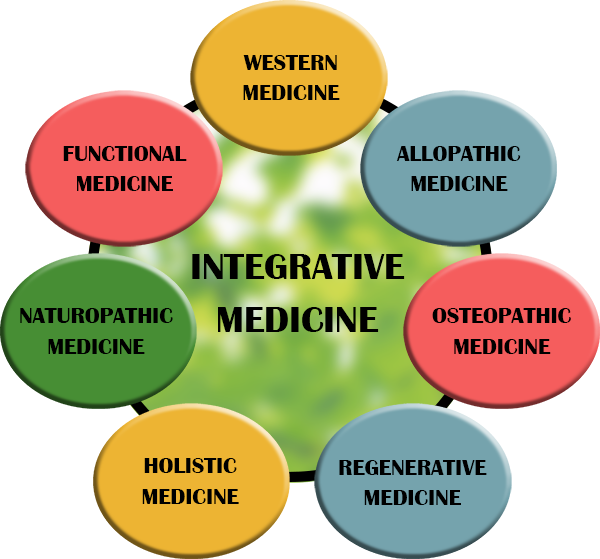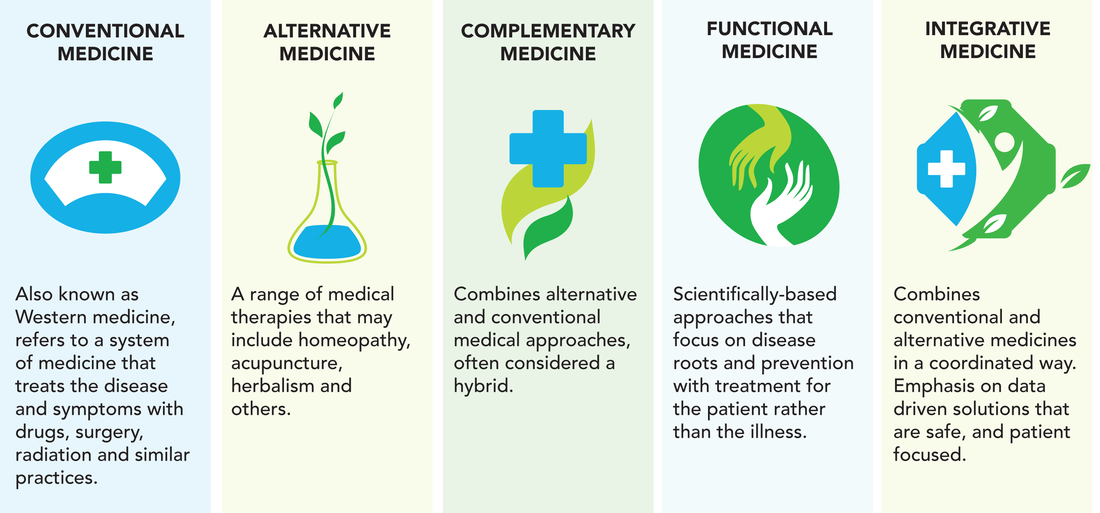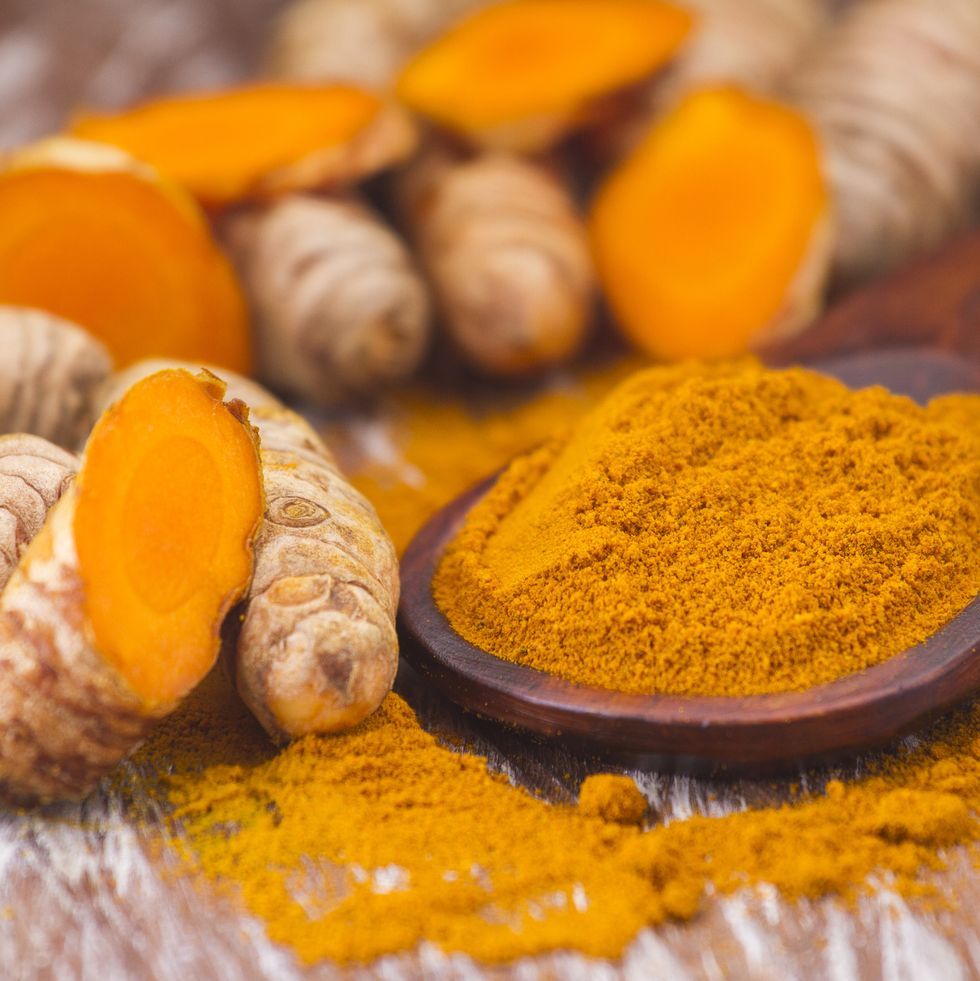The Value of the Integrative Medicine Curriculum in a FM Residency Program
Malalai Zoltani, MD and Chinedu Nwagwu, MD
SAMC Department of Family Medicine Residency Program
INTRODUCTION
Integrative Medicine is defined as a healing-oriented medicine that takes account of the whole person, including all aspects of lifestyle. It emphasizes the therapeutic relationship between practitioner and patient, is informed by evidence, and makes use of all appropriate therapies.
PATIENT CASES
- 56 yo F with h/o DM, HLD, HTN, morbid obesity- initial BMI 41, significant weight loss of 40 lbs in a year with lifestyle modification, anti-inflammatory diet, exercise and mindfulness. Patient was also able to come off of one DM and HTN medication.
- 35 yo M PMH of HLD and strong family h/o hyperlipidemia - pt reluctant to medications --> Significant improvement in HLD with garlic, Red Yeast Rice and CoQ10.
- 34 you F with PMH of DM type II, morbid obesity, iron deficiency anemia, chronic low back pain due to DJD and degenerative disc disease, and vitamin D deficiency. No pain control with NSAIDs - back pain improving with Yoga and meditation.
COURSE OVERVIEW
One Year Online Course
3 FM PGY3 residents elected to participate
Participate with a total of roughly 184 hours with the following understanding:
- Introduction to nutrition
- Micro nutrients and supplements
- vitamins, minerals, common dietary supplements, Microbiome
- The anti-inflammatory diet
- Physical activity and health
- introduction to mind-body medicine: stress, relaxation, health
- Environmental health
- Integrative sleep health
- Spirituality and health care
- Smoking cessation
- Integrative health assessment
- Mind-body modalities
- Botanical foundations
- Manual medicine, such as osteopathy, massage therapy, physical therapy, chiropractic
- Ayurveda, traditional Chinese medicine, neuropathy, homeopathy
- Energy medicine, introduction to functional medicine
- Pediatrics integrative medicine, respiratory health, mind-body pediatrics, pain management and pediatrics, integrative pediatric neurology ADHD and autism
- Integrative rheumatology
- Acute care
- Women's health, such as PMS, dysmenorrhea preconception counseling, infertility, PCOS, pregnancy, menopause, osteoporosis, female pelvic pain disorders, sexual health
- Chronic illness, obesity
- Integrative cardiology, integrative gastroenterology, integrative pain management, such as headache, and low back pain, cannabis and pain, integrative rheumatology
- Anxiety and depression
- Integrative endocrinology
- Integrative diabetes care
Certification Process
→ 3 hour Exam
→ Passing score 70%
Common Examples
Mind-body medicine is a branch of integrative medicine that focuses on the interaction between the mind and the body, and how this relationship can influence health and wellbeing. It recognizes that the mind and body are interconnected, and that mental, emotional, and spiritual factors can affect physical health, and vice versa.
Techniques and therapies that are used to promote health and wellbeing, including mindfulness, meditation, biofeedback, hypnosis, guided imagery, yoga, and tai chi.
Nutrition plays a vital role in maintaining health and preventing disease, and is often used in integrative medicine as a primary treatment or as a complementary therapy. Nutrition plays a crucial role in integrative medicine because it provides the building blocks for optimal health and can help prevent and manage a range of health conditions.
Turmeric is a spice that contains curcumin, a powerful anti-inflammatory and antioxidant compound. It is often used to treat arthritis, digestive disorders, and other inflammatory conditions.
Echinacea: This plant is often used to boost the immune system and treat respiratory infections, such as colds and flu.
Ginger is another anti-inflammatory plant that is commonly used to treat nausea, vomiting, and digestive issues.
CONCLUSION
How IMR could be useful in the primary care setting
IMR provides alternative / more holistic approach to chronic diseases.
- Acupuncture - a complete medical protocol focused on correcting imbalances of energy in the body. It can be used to alleviate chronic pain, such as joint pains due to OA/RA, Insomnia, Stress, headache, heartburn, IBS and so much more
- Breathing exercise - such as 478 breathing, can be used as a natural anti-anxiety modality, which works through activating parasympathetic pathways and working as a natural tranquilizer for the nervous system. The 4-7-8 breathing exercise is utterly simple, takes almost no time, requires no equipment and can be done anywhere.
- Anti-Inflammatory (AI) diet - Dietary recommendations in the clinical setting are important since they convey the powerful message that nutrition matters in good health and help aid to improvements in mood, weight and energy. They may be a stepping-stone to additional lifestyle improvements, such as increased physical activity or reduction in smoking. Improved health may lead to fewer chronic illnesses and lower overall health care costs. The AI diet is associated with reduced chronic inflammation--which studies show are associated with many chronic diseases. The AI diet is a plant forward diet that eliminates refined, processed, and manufactured food.
- Stress-Relaxation and Health - Understanding the effects of stress on the body and how it can cause a chronic inflammatory state in the body, will help motivate patients to recognize and prevent behaviors that can cause stress and also how in general to deal with stressful events/situations. When stress is abundant, repeated or chronic, the brain and body become vulnerable. A review of the multiple effects that occur when the brain senses a threat is necessary to the understanding of mind-body medicine.
- Common dietary supplements - can be considered for patients reluctant to medication or to add to medication regimen. CoQ10, Melatonin, Glucosamine, Omega 3 fatty acids, Probiotics, Turmeric, Echinacea, Valerian etc
References
- https://integrativemedicine.arizona.edu/
- https://www.nccih.nih.gov/about/offices/od/director
- Dobos, G., Tao, I. The model of western integrative medicine: The role of Chinese medicine. Chin. J. Integr. Med. 17, 11–20 (2011). https://doi.org/10.1007/s11655-011-0601-x
- Maizes, V., Rakel, D., & Niemiec, C. (2009). Integrative medicine and patient-centered care. EXPLORE, 5(5), 277–289. https://doi.org/10.1016/j.explore.2009.06.008
- Millstine, D., Chen, C. Y., & Bauer, B. (2017). Complementary and integrative medicine in the management of Headache. BMJ. https://doi.org/10.1136/bmj.j1805
- Ring, M., & Mahadevan, R. (2017). Introduction to integrative medicine in the primary care setting. Primary Care: Clinics in Office Practice, 44(2), 203-215.





